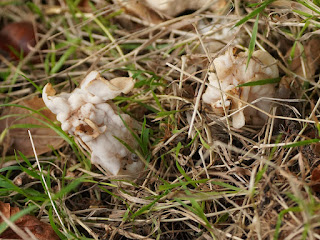There was a Black-Headed Gull from Denmark on the edge of the Serpentine, with a metal ring 6J-1833 and a colour ring White V17U. I've reported it on the Euring recording scheme. Since it's an adult it may have a bit of a history.
Pigeon Eater looked down imperiously from his place on the restaurant roof.
The Little Owl at the Round Pond was leaning against a twig, which sank a long way into her feathers. Inside their thick plumage owls are thin birds.
The male Chaffinch in the Rose Garden shrubbery waited in a bush.
A Coal Tit flitted overhead and paused for a second on a branch of a red-leafed cherry tree. I've seen Coal Tits in this tree before and I think they nest in it.
A Robin in the Flower Walk sang loudly ...
... at the next one along the path, the Robin that lives inside the yew hedge. Secure in its sheltered home, it didn't bother to reply.
The crowd of Cormorants at the Serpentine island has spread on to the boats. I'm glad I don't have to clean these.
A pale young Cormorant dried its wings across the Long Water from Peter Pan.
A Great Crested Grebe on the Serpentine looked at the camera with mild interest.
Another dashed off in a panic when a rival deliberately surfaced under it.
The Black Swan at the Round Pond doesn't come ashore much, because he attracts too much attention from the humans.
The fox in the willow was in a better place, but not for long. It gave a tremendous yawn ...
... turned round, and settled down to sleep.
A headless horseman rode along the Serpentine Road. Normal for the time of year, I suppose.
Another seasonal touch: there were some strange-looking Elfin Saddle fungi, Helvella crispa, under the sweet chestnut trees across the lake.

%20on%20roof%202024%204a.jpg)


















%20on%20roof%202024%203a.jpg)






























's%20mate%20on%20resturant%20table%202024%201a.jpg)




